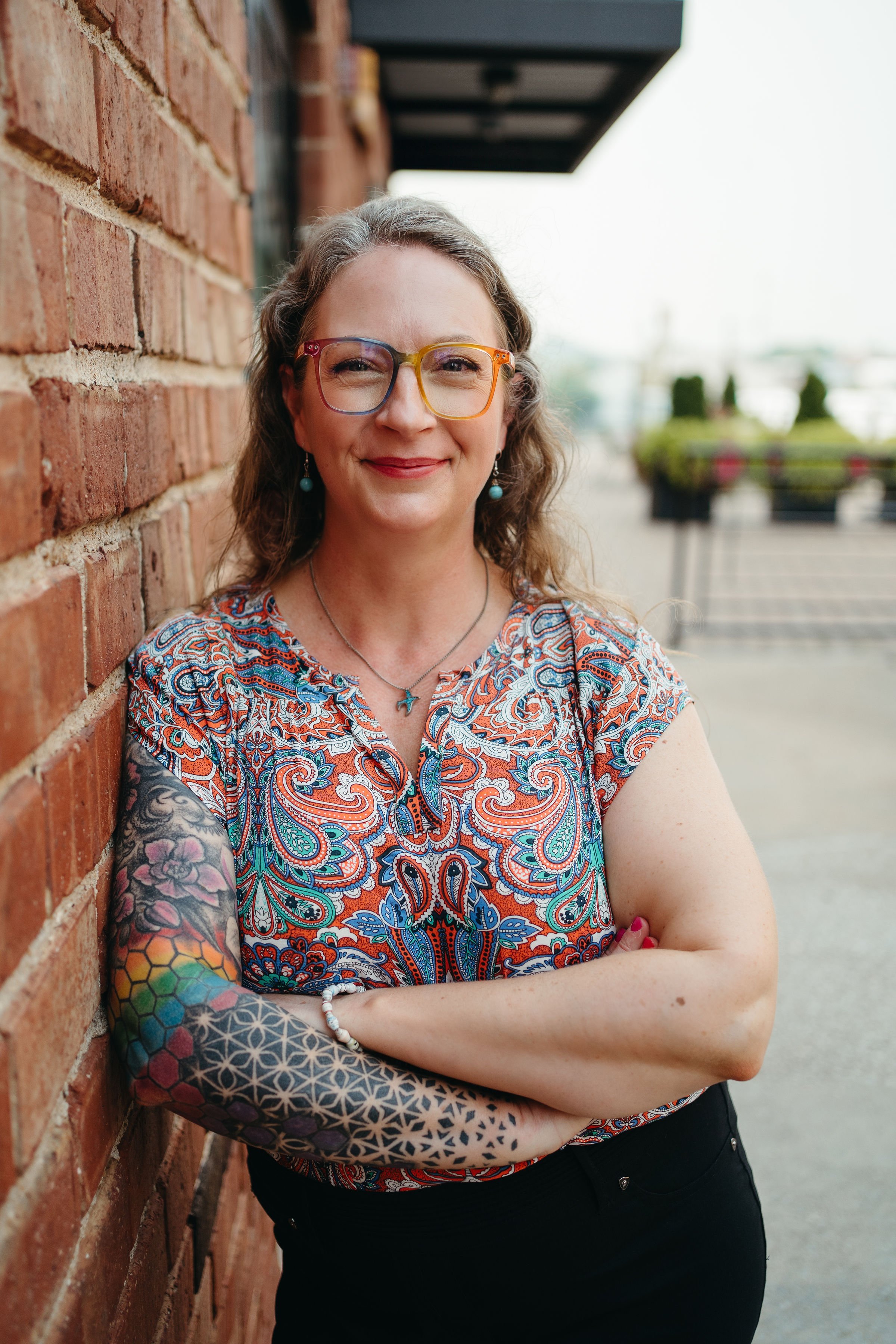
You’re only a few taps away from healing and health.
About Blake
Meeting with a new therapist can be daunting. To get the most out of therapy, you have to dig-in and shed light on intimate details of your life… and sometimes that’s a little easier if you know a few things about me as well.
I was born and raised in mid-Missouri which gives me a healthy understanding of midwestern dynamics. I was also fortunate enough to live abroad in Japan and in the Chicagoland area for several years which has given me an appreciation for diversity and a keen awareness that everyone walks a very unique path in life.
I was raised by amazing, empathic, and gay father, which makes LBGT+ issues near and dear to my heart. I’ve worked with numerous folks in the community over the years and I’m honored for the opportunity to help them love and understand themselves. Everyone deserves to be loved and appreciated no matter what that looks like for you.
My clinical career has had a lot of interesting twists and turns. After graduating with a B.S. in Psychology from Truman State University, I stayed in Kirksville and worked with Adair County Social Services. As a wide-eyed 22 year old, this was my first real awakening to the harsh realities of abuse and addiction and the very real impact trauma has on our development and world-view. This also spurred me to get my Masters in Social Work from Loyola University Chicago. I wanted the opportunity to help make profound change in people’s lives.
I’m incredibly grateful for all of my clinical experiences that have brought me to this place. My early days in Columbia, Missouri were spent learning and growing with the amazing staff of the Family Counseling Center. There I provided individual, couples and family therapy, facilitated their outpatient addiction program and co-facilitated mens batterer intervention groups. I also facilitated a fully-compliant Dialectical Behavioral Therapy (DBT) program to help dysregulated individuals learn vital skills to have a life worth living. DBT, which centers around mindfulness and cognitive-behavioral theory, can be transformative and it continues to largely influence my practice today.
I started working for the Department of Veterans Affairs in 2008. Over more than a decade of VA service, I started and grew a permanent housing program for veterans experiencing homelessness. I am forever grateful for the opportunity to house more than three-hundred veterans and their families in the mid-Missouri area. This position was both incredibly challenging and rewarding. I was witness to tragic suffering, discrimination and loss, as well as dogged determination, resilience and triumph over trauma. With prior service in the Missouri Army National Guard and Army ROTC (shout out to my fellow 95B out there), paired with my experience as a military dependent, I’m uniquely familiar with the full spectrum of military culture. The good, the bad... and the ugly.
Program development taught me a lot about leadership and the value of quality supervision. I also got a crash course in the complexity of managing a team of clinicians with very unique learning, communication styles and personalities. Despite our differences, our team kicked-ass, largely due to the culture of inclusion, collaboration and communication I worked hard to foster. The VA also taught me a lot about the impact working in a toxic and hostile environment can have on your psyche, sense of worth and overall life satisfaction.
I fled the federal government in late 2019 and needed some time to heal and regroup. My partner and I built a commercial bakery (yep, we built it from the studs up, friends) and I used the creative outlet of baking and cake decorating to reconnect with myself and reevaluate my professional priorities. As it turns out, even though I love making beautiful and over-the-top cakes (for real, I really love it… check out my bakery at TheBlakery.net), nothing quite compares with helping people heal and make profound positive changes in their lives.
Thomas Clinical Solutions allows me to have my cake and eat it too (pun entirely intended)! I get to provide life-affirming virtual therapy, actionable workplace interventions and quality clinical supervision and consultation. Does it get any better?! Nope. Let’s find a solution together!
